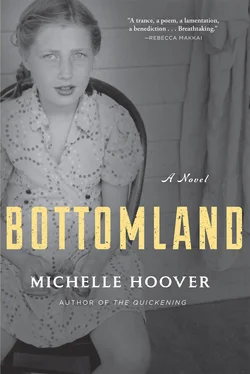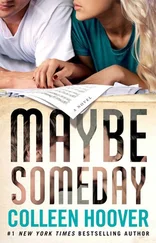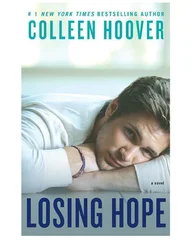I shared my seat with an old woman who wore a yellow flowered hat. She held it in her lap and stroked it with her thumb, stroking it until minutes after we left the station when she dropped her head to sleep. Out the window, the lake was gray and rough. The lights from the city faded, and all that was left was dark. Dark fields and dark roads, going no place I ever would know. My face peered back at me in the glass, dark as everything else. The train rocked, the wheels going full out. I could ride this train and never get off. Go west as far as the Dakotas, farther even, to a place where waking wasn’t so hard and electric wasn’t and knocking on a door was even less.
“Dear,” I heard. I opened my eyes. “You were dreaming some sort of nightmare,” the old woman said.
“What about?”
“Good heavens, I have no idea. I don’t trust them myself.”
“What?”
“Dreams. A person never knows whether they’re up or down. Why, whenever I’ve slept through the night without one, it’s a triumph. When you’re older you’ll feel the same.”
Her face was puffy, her eyes red-rimmed like she hadn’t slept in years. “I don’t have a clue know how far along we are. Do you?”
I looked out the window. It was black as pitch, not a house, a tree. “We could be anywhere.”
“Anywhere,” she said. “That’s a place.”
“We could be nowhere too.”
“Don’t say that.” She gripped her chest. “It’s always better to have a place. Whether you like it or not. It makes a person somebody.” She sighed like a great wind and peeled herself from her seat. “Now I’m off to the ladies. Would you mind watching my things?”
Down the aisle she waddled, balancing herself. The woman was as round as a peach. The door closed behind her with a bang. After a quarter of an hour, she didn’t come back. I flattened my hand on the leather where she’d been and it was warm. As far as I could see, she’d left nothing behind. After a while longer, I wondered if she’d been there at all.
Home.
The fields weren’t any different, a rough tide after planting, and the yard yellow with spits of grass. Those fields were low and hollow after Chicago. In the pasture, the cows dug their noses in puddles of rain. The house seemed squat, the sills wanting a coat of paint, and I couldn’t do more than stand on the steps. It took me almost an hour to knock the first time. No one came. It was late afternoon. The porch was shadows, the crickets sawing. In no time, Lee would come in from the corrals or Ray, and I didn’t want to be found at the door like an old cat. I knocked again.
The door opened. Nan stood with her hand on the knob, an apron at her waist. Taller than poles, she was, and sun-dark, but that hand of hers shone with a ring and she carried a bump under the front of her dress. A strand of hair clung to her cheek. She swept it back. I’d never thought of my oldest sister much, but now she seemed bigger than she ever was.
“Esther,” she said, turning. Her mouth opened and she pressed her fingers to her throat. “It’s Esther.” In a rush, she folded me in her arms. The house behind her was warm and full. One voice and another, a scurry of them in the hall.
“Agnes!” Nan called over her shoulder. “Lee!” She held me tighter. “What a terrible child you are. What a terrible, terrible child.”
“Your father will never believe it,” Patricia said. She picked a lump of gristle from her teeth.
We sat around the table, every one of us in the same place, everyone but Father. He was off in his room, asleep, just like after Mother went. Next to Nan, in Myrle’s chair, was Carl McNulty. His sleeve hung empty, he smelled a stranger, but the bunch of them acted like he’d been there all along.
Nan rested her fork. She hadn’t touched her food. Since setting out the plates, she’d perched in her chair, her eyes on the hall. The others didn’t do much better. Ray sat at the end, rubbing his hand. Well now , he’d said when the others rushed me on the porch. He’d given me a pat on the shoulder, worse than a dog. Outside and in, it was quiet. I wasn’t used to that. In a place like this, a cry from an animal carried miles, right through the windows, as if it was in the room with us, and there was nothing to do but feed it scraps.
Nan folded her napkin in her lap. The sigh she gave. It could cut a girl to pieces.
“Oh, Nan, don’t,” Agnes said. Nan cupped her face. Carl reached for her while the rest of them dropped their heads.
“She doesn’t know,” Nan let out.
“Not now,” Agnes said.
“Know what?”
Agnes was out of her chair. She gripped me by the arm. With a look, Nan tried to hold us in place. My oldest sister was younger than I’d ever seen her, her old bones with flesh on them, like what that man next to her did, he’d done in reverse, got her pregnant with herself. She’d never wanted to be our mother in the first place.
“Come on,” Agnes said, tugging at me. “I’ll show you.”
We walked to the river that wasn’t anything more than mud and weeds. The moon was out, the water black. Across the fields, the Clarks’ kitchen was busy with shadows, but the Elliot farm was dark, not a spit of smoke. It looked like those houses that sat closer to town, where the farmers had given up the goose and moved off. Only squatters in those houses now, or emptied out, a sign from the bank staked in the yard. The Elliot house didn’t have a sign. Even their fence was gone.
“About a mile off,” Agnes started. “That’s where they found her.”
“Who?”
Her eyes narrowed. “Myrle, of course.”
I turned my head. A mile off was more river, the place the water sank into a pool where we went swimming. Myrle always floated in her knickers, paler than any of us. But the way Agnes said Myrle’s name, it sounded something worse.
“That’s what I thought too,” Agnes went on. “It can’t be. The girl had been in the river for months, and she only came up with January thaw. By then, no one could recognize her. Just a girl, blond like Myrle, blue eyes. But no one else was missing. And we’d already found Myrle’s dress in the washhouse.” The corners of her mouth drew up sharp. “If it was just you who’d run off, we knew we wouldn’t hear anything. Myrle was different. She’d at least try to write.”
I crouched in the dirt and stuck my hand in the water, cold as nails. It wasn’t so terrible what I did with Myrle’s letters. Not so terrible as rivers.
“You can’t tell,” Agnes said.
“Tell what?”
“Where she really is.”
“And where’s that?”
“Chicago. Just like you.”
I didn’t answer her.
“They thought it was Tom Elliot who did it. He always did have a thing for Myrle. But they didn’t have enough to arrest him. Still Tom was acting crazy. A week later, he put a gun to his head.”
Tom and that loft in the barn. Sure enough, he must have felt guilty after that. Even if he hadn’t taken Myrle to the river himself, maybe he drove her there with what he did. Maybe that’s what he’d thought.
“But if Tom had killed her,” Agnes went on, “he wouldn’t have left her dress in our washhouse. And he wouldn’t have torn it up like that. The way Mother taught us.”
“If you know so much, why can’t I tell them?”
“Because of Lee.” She took a step closer. “I tried to tell them her drowning didn’t make sense, but they wouldn’t believe me. Wishful thinking, they said.” She sighed. “Lee would die if he found out. Tom used Lee’s gun.”
“Lee’d never let that happen.”
She looked away. “What I don’t understand is why Tom didn’t use his own. If he wanted to kill himself, I mean.”
“What difference does it make?”
Читать дальше












